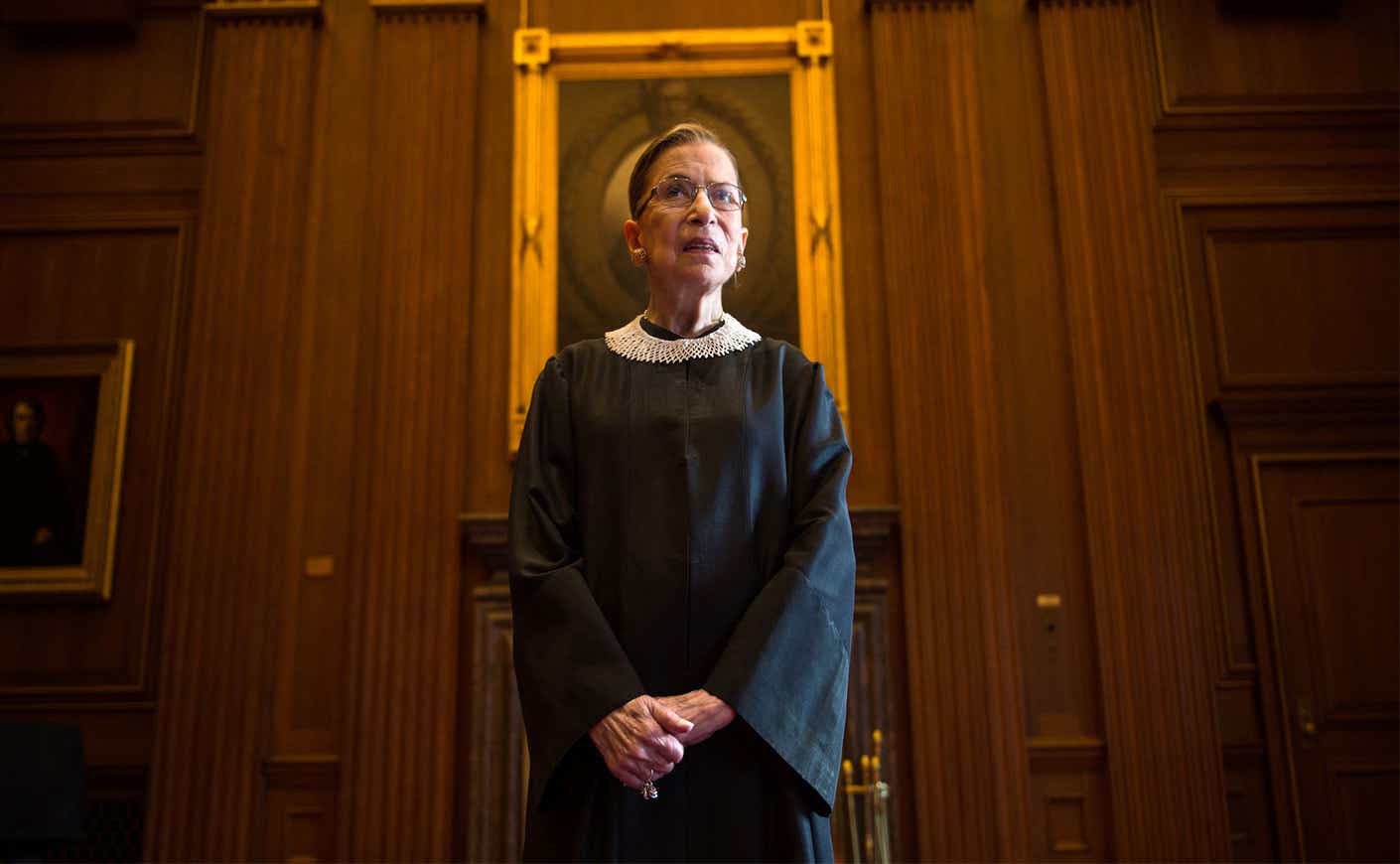The late Supreme Court Justice Ruth Bader Ginsburg has long been hailed as a feminist icon and champion of gender equality. Her lasting impact on the Supreme Court is also considered indelible, no matter which side of the political aisle you sit on.
Following her death last September at the age of 87, tributes flooded in from fellow colleagues, lawmakers, celebrities and members of the general public. While former President Bill Clinton praised her as a “brilliant lawyer with a caring heart,” Republican Sen. Mitt Romney remembered her “grit, character and sharp wit.”
But prior to becoming the second female justice to ever serve on the Supreme Court, Ginsburg faced a number of obstacles. A new documentary of her life, Ruth: Justice Ginsburg in Her Own Words, explores Ginsburg’s seemingly improbable rise to the highest court in the land, and unlike previous documentaries, the film seeks to paint a more intimate portrait of the late Supreme Court Justice.
Freida Lee Mock, who directed, wrote and produced the film, said Ginsburg started her career with three strikes against her as a woman, mother and Jewish-American. She pointed out that Ginsburg became the “architect” in ending sex discrimination after personally experiencing it herself.
Despite graduating with top honors at Columbia Law School, Ginsburg encountered discrimination while seeking employment. But that didn’t get in her way — at least for long. After clerking for U.S. District Judge Edmund L. Palmieri, she taught at Rutgers University Law School and at Columbia University, where she became the school’s first female tenured professor.
She went on to serve as the director of the Women’s Rights Project of the American Civil Liberties Union (ACLU) during the 1970s and argued six landmark cases on gender equality before joining the U.S. Supreme Court.
“When she had the chance to argue those cases, it was arguing what she experienced of not having equal opportunity,” Mock told KCM. “And she was denied that as a mom and as a woman.”
“The 14th amendment was probably so deeply felt not only intellectually, but also deeply felt personally.”
Though Ginsburg is remembered mostly for her legal contributions in leading the liberal wing of the court, Mock also said that Ginsburg was also an impressive person on a personal level, pointing to her friendships with ideological foes like the late Supreme Court Justice Antonin Scalia, a relationship she said was a “lesson to all of us.”
“They met on the ground on the shared experience of humanity and friendship,” Mock said of the two late justices.
She ultimately hopes her documentary will encourage people to continue to pay attention to the Supreme Court, which has garnered intense focus in recent years under the former Trump administration. The former president’s court has been previously called the conservative-leaning court in modern U.S. history. But she noted that despite its conservative leanings, she said Ginsburg’s legacy will continue to live on.
“It’s interesting to see how one person absolutely makes a difference,” she said. “She is one of the most remarkable people that I’ve actually really had a chance to really study in-depth and to see the body of work that she has left us.”
Ruth: Justice Ginsburg in Her Own Words, is out now in virtual cinemas, and will be available on-demand on March 9. Mock said the film is very much an intimate portrait of the late justice.
“It’s shaped as much as possible in her own words, as opposed to others defining who she is,” she said. “That was very much a conscious choice on our part.”
Written and reported by Tess Bonn.









